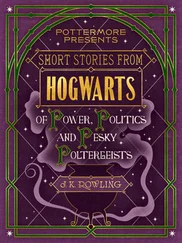“To fall asleep so that not even his screaming could wake me – ” thought Hero. His wife came in, undressed and lay down, the air current from her act of lying down carried smell of sweat to him. He lay with his back to her and pretended to be asleep.
“What, sleeping already?” asked his wife, but Hero made no reply. Lately this question exhausted their relations in bed. But now Hero was thinking of only one thing – how to enter into sleep. He heard his wife open the drawer of the night-table, fish out the vibrator and set it to her favorite speed. The drone of the vibrator sank Hero into his longed-for sleep.
When he woke up he saw the face of a man bending over him. The man was dressed in a business suit, and a stethoscope hung around his neck. At his side appeared the frightened face of Hero’s wife.
“How do you feel?” asked the man, and Hero understood that he was a doctor but still could not understand why he was there.
The doctor shook Hero by shoulder and repeated his question.
“Great,” replied Hero and sat up in bed, “but what exactly is the matter?”
The doctor was about to open his mouth, but the wife interrupted him:
“I couldn’t wake you up, you were sleeping like the dead.”
“For how long?” asked Hero.
“It’s three in the afternoon,” replied the doctor.
Hero smiled triumphantly. His dream was coming true – he was becoming invulnerable.
“What are you smiling about?” The worry on his wife’s face was quickly replaced by irritation. “You’ve already overslept for work. I shook you, poured water on you, pinched you – nothing helped.”
“Daddy, are you alive?” asked son, opening the door to the bedroom half way.
“Ask your mother,” said Hero.
Meanwhile the doctor had finished taking his pulse. Then he began to examine Hero’s eyes, listened to his heart and finally announced thoughtfully that he would like to examine him more thoroughly in the hospital. In conclusion he assured them that cases of lethargic sleep were extremely rare, and that such a deep sleep as Hero’s might be accounted for by nervous exhaustion. The doctor left with ill-concealed bewilderment on his face.
But the joy of victory bubbled up in Hero’s heart. He felt an unprecedented strength in himself. “This is why deep sleep is called heroic in fairy tales,” thought Hero. He was impatient to test once again the strength of his soul, which had so successfully withstood the pressure of an alien world. The doctor’s visit had given him the status of an invalid, despite the diagnosis of complete health, so Hero decided not to get out of bed. He took down a book, but was unable to read and laid it down beside him. He looked at the window, in which an ancient tree was swaying.
“Are you going to lie around all day?” asked his wife as she entered the room. “I missed work today too, because of you.”
“I want to sleep,” said Hero, looking at the tree as before.
“You’ll sleep long enough when you’re dead,” replied his wife. She was going to add something else, but their son screamed, and the wife ran out of the room.
He looked at the tree and thought about how indifferent he was to people and how indifferent people were to him. Here they are born, pass through all the stages of life, and this seems so natural to you, and other people’s feelings do not touch you. And when they die, you simply transfer your gaze to others, still young, and life continues uninterruptedly for the observer. But at some point you understand that you are not an observer but a participant, and this means that death will come for you, too, and somebody else will just as easily transfer his gaze from you to someone else, And no one will understand your dying feelings until he dies himself, but then it will already be too late for him, so much the more so for you. Thus, by lack of understanding of one another, people are protected from premature knowledge of death.
Hero started so drift off into sleep, and relished his soft but overpowering sensation. He fell asleep in the early evening and heard neither the sound of the television, nor his son’s sobbing, nor his wife’s screaming. He felt only the growing depth of the peace which was filling him.
In the morning Hero’s wife discovered that his body was cold. The doctor was called out to confirm death. The wife, frightened and distraught, wept without sobbing and was tormented by the blasphemous feeling of relief which she recognized among her sensations of bitterness, horror and helplessness. Her mother arrived and after a fleeting glance at her unloved son-in-law took her grandson away from her. When, in answer to the boy’s question “what happened to Daddy,” Hero’s mother-in-law-replied, “He died,” the boy flew to the telephone.
“Who are you calling?” asked the mother-in-law in surprise.
“I want to say goodbye to Daddy,” the son explained.
1984
Translated from Russian by Amy Babich
His huge muscles were attractive to women. Aware of this, Nar always tensed himself as he walked, so his muscles would bulge out noticeably. He never let his arms dangle but instead bent them slightly at the elbows, which thrust forward the musculature of his chest. It also had the effect of raising his shoulders, which, though sloping by nature, looked broad when overgrown with muscles. Constant tensing had become such a habit with him that even in his sleep he occasionally played with his biceps.
At seventeen he moved from a small town to a big city, started college and devoted himself to the study of science with the thoroughness and doggedness of the provincial. But he poured no less energy into athletics. Having once seen a photograph of a famous body builder, Nar was fired with the dream of such a body. Life in the big city supported this dream, and he started working out almost every day. Nar acquired magazines and other body-building literature, and before long the walls of his room were decorated with photographs, not of women’s but of men’s bodies, consisting of hypertrophied clots of muscle, for the cultivation of which had garnered international prizes.
The more his body developed muscles, the more deeply besotted with love for it Nar grew. He especially valued his body for its power to get attention from women. True, this was not always successful. Or rather, practically all women paid some sort of attention to him, but he did not always receive that warm attention that slides so easily into tenderness. Some girls looked sardonically at his jacket bulging with muscles and inquired: “You pad yourself there or something?”
“It’s all real – feel for yourself,” Nar replied seriously.
“Maybe some other time,” said the girls, preferring to take his word for it.
At one of his first student parties a certain curious young woman asked him to let her see his muscles for herself. She led Nar into another room, which was empty, and asked him to strip to the waist. While he was neatly folding his jacket and shirt on a chair, the young woman managed to undress completely, dropping her clothing to the floor, so that when he turned to face her a sight met his eyes that he beheld for the first time in his life.
“What a big chest you have, like a woman’s,” she exclaimed, and kissed him on the nipple. The muscle tensed by reflex, and his chest jumped forward. The girl burst out laughing and kissed him on the lips.
Although his mind was trying to dissociate itself and give the body freedom, Nar managed to connect two circumstances: the girl’s incipient interest in his athletic physique and the pleasure that he had just received. And subsequently Nar observed that the sexual experiments to which he subjected his body followed an unvarying pattern: a woman, enraptured by his body, would offer hers. Once he had discovered this law of nature, Nar tried to make it work for him as often as possible.
Читать дальше












